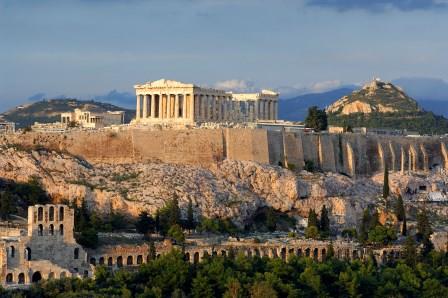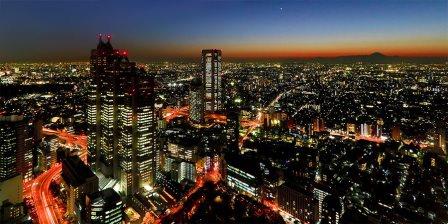Did you know:
The early Greek cities were commonly built on top of hills to make it easier to fortify and defend them in case of attacks. As the Greek word for peak was akros and for city, polis, such cities came to be called acropolis.
The first Greek ‘states’ were in fact no more than an acropolis surrounded by a few villages. However, as their population grew, the Greeks started establishing colonies in distant places. And the city (or state) of origin of a colony was referred to as metropolis (mother city, from Gk metr: mother) – a word that we now use for a large, central city of a region or state, such as, Bangalore Metropolitan Transport Corporation or Agatha Christie’s The Jewel Robbery at the Grand Metropolitan.


Citizens were called polites in Greek and the related Lt word politia (civil administration) gives us the words police (which originally helped with administration and later with public order), policy and polity.
Policy, as you know, is nowadays not only used in relation to governance (health policy or education policy) but also in a broader sense to mean a plan, principle or course of action (for example: company policy, insurance policy or in phrases such as ‘It would be a good policy to….’). And polity refers to an organised society with a particular form of government, as in, the Indian polity is based on the principle of live and let live.
Political originally meant concerned with policy or administration of the polis. As the competition for the control of city administration increased, people resorted to less-than-fair means and the very word politics became synonymous with power struggle and manipulation (as in office politics). Paulo Freire, for instance, sees education not as a neutral transmission of knowledge and skills but as a political act.
Politic (originally: constitutional), similarly carries both positive and negative connotations. It is generally used to mean judicious or prudent (for e.g. they found it politic to not pursue the topic any further), but can also be used to convey the sense of diplomatic and shrewd/cunning – the politic spokesperson responded to all questions but answered none!
Impolitic is however used only in the negative sense – of not according to good policy or injudicious (for e.g. the methods he used to quell the dissidence was impolitic and tyrannical). And apolitical intellectuals are uninterested in politics and an apolitical campaign is politically neutral.
Words discussed:
Acropolis, Metropolis*, Metropolitan
Police, Policy, Polity*
Politics, Politic*, Impolitic*, Apolitical*
What made you look up the word/s in this post? Did you find the explanations here useful or interesting? Do tell us by leaving a reply below!









One thought on “Polity of the metropolis”